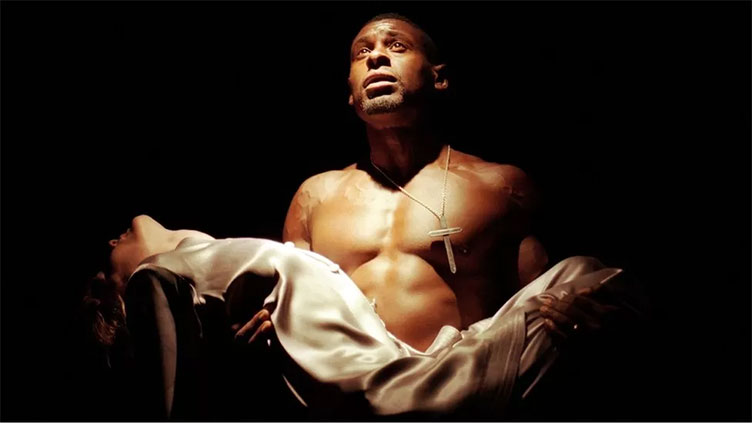David Harewood: Actor says the government should apologise for slavery

Entertainment
Prime Minister has previously said "trying to unpick our history is not the right way forward
(Web Desk) - Actor David Harewood has said the government should "100%" apologise for Britain's role in the slave trade.
The Homeland star has discovered his ancestors were enslaved on sugar plantations in Barbados.
He told the BBC the government's failure to say sorry was "detrimental to the many thousands of people in the country who are descended from slaves".
Prime Minister Rishi Sunak has previously said "trying to unpick our history is not the right way forward".
Harewood's ancestors were enslaved on plantations owned by the Lascelles family, the Earls of Harewood, who built Harewood House, a vast 18th Century stately home near Leeds.
No expense was spared, with furniture by Thomas Chippendale, landscaping by famed garden designer Capability Brown and portraits by Reynolds and Gainsborough.
But it was financed with the proceeds of slavery. The Lascelles made their fortune and gained their title on the back of an inhumane trade.
Harewood's ancestors, like all slaves, were forced to take the name of their owners.
"The only reason that my name is Harewood is because of slavery," the star said. But even he didn't know that story until recently.
'Honest about the past'
When the actor visited Harewood House while in his thirties and working at the West Yorkshire Playhouse, he thought the shared name was a coincidence.
"It's only later in life that I've realised that significance and that connection."
Harewood and David Lascelles, the current Earl of Harewood, are now acknowledging their shared history by placing a portrait of the actor on display among the family portraits in Harewood House's grand Cinnamon Drawing Room.
The Earl of Harewood said: "Being honest about the past is the only way to start to address the prejudices of the present."
The portrait by Ashley Karrell is part of a series called Missing Portraits, which addresses the lack of diverse representation in the Harewood collection.
The earl said their families "interlock in a weird and dark way", adding: "We can't change what's happened, but we can change what happens now.
"I'd like people to think we'd tried our best to make a difference here."
'Brutality built this house'
David Harewood hopes that when visitors "see a picture of a black person that they may recognise from the television, they will enquire as to why his picture is there, and then they'll understand… all of the unpaid work that my ancestors did, and the brutality of what they suffered… helped build this house".
The issue of how to address the sins of slavery is very current. Barbados is leading calls for reparations, which Harewood supports. The descendants of 19th Century Prime Minister William Gladstone recently travelled to Guyana, the latest family to apologise for their ancestors' links to the slave trade.
If Harewood requested a personal apology, he "probably would [give one] if he asked me directly", he said.
We looked through handwritten family papers dating back to when the Lascelles acquired the Thicket and Fortescue plantations in Barbados in 1787. They list "Slaves Stock and Utensils" - itemising Thicket's 238 slaves as worth £45 each.
Goats, hogs, sheep and cattle are listed above slaves.
Particularly poignant and shocking is the reference to six "negroes of no value".

